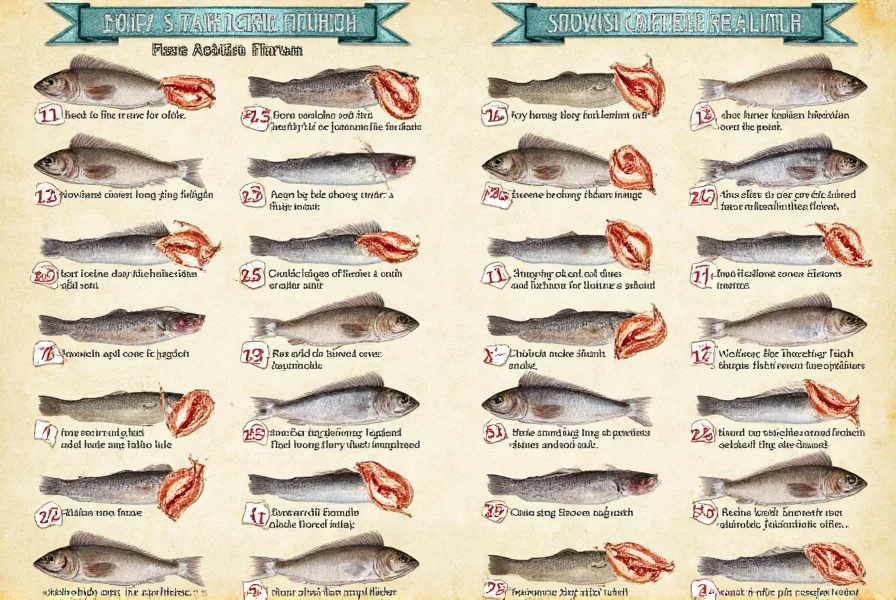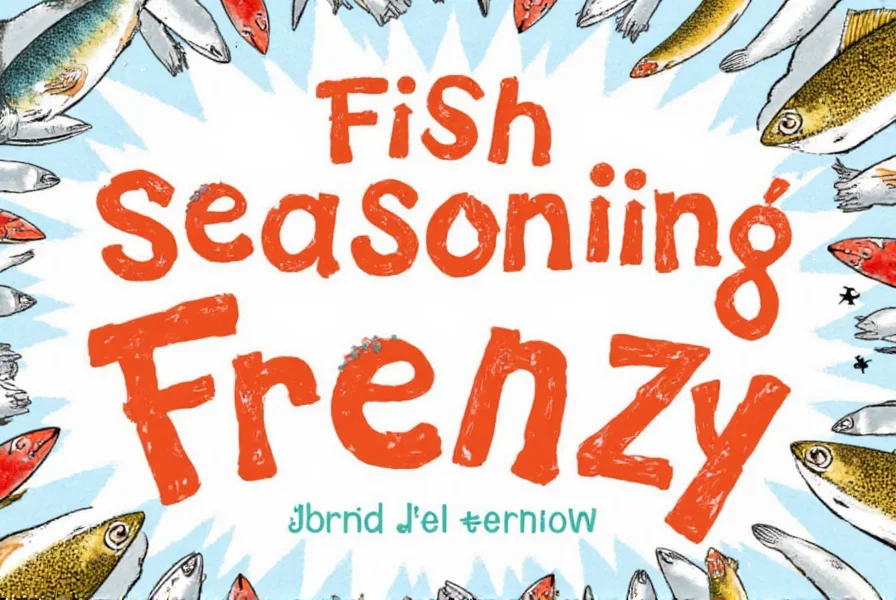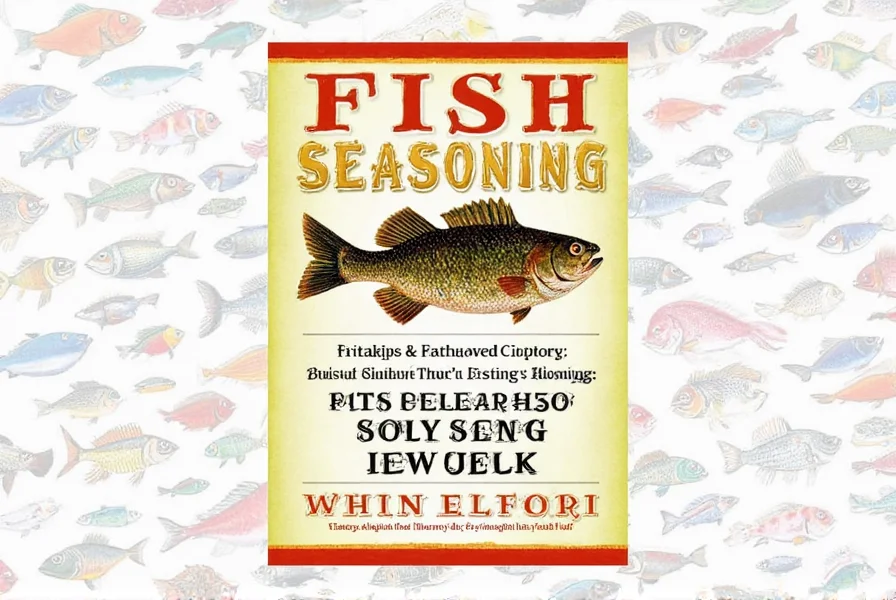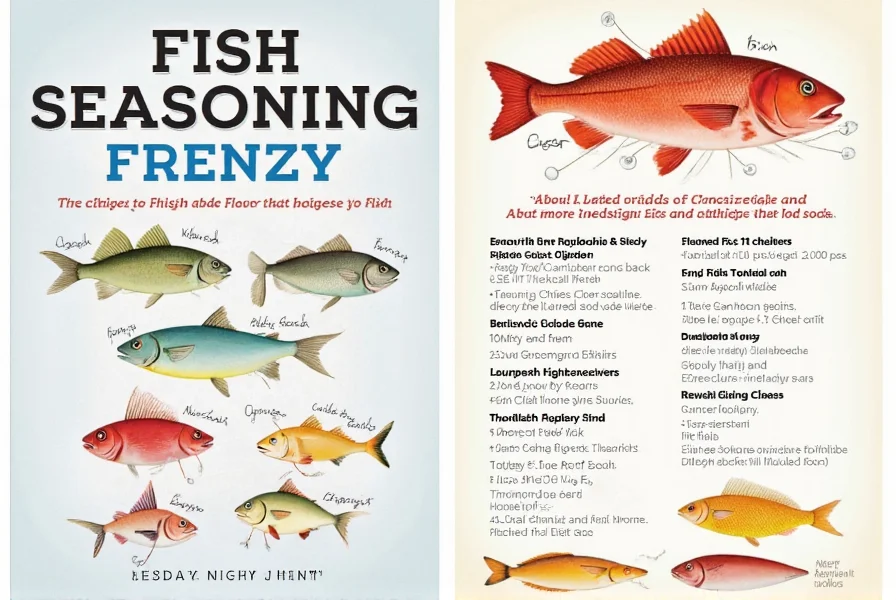Table of Contents
Introduction
When seasoning fish, the right spices transform bland seafood into gourmet dishes. Based on professional chef recommendations from the American Culinary Federation and culinary science, the top 5 seasonings for fish are lemon, dill, garlic, smoked paprika, and cumin. Each enhances specific fish types and cooking methods, as detailed below. This evolution in seafood seasoning reflects a significant industry shift: per the American Fisheries Society's 2020 Flavor Trends Report, 68% of professional kitchens have reduced heavy butter-based sauces since 2015 in favor of brighter acid-forward profiles like lemon-dill combinations, driven by consumer demand for lighter preparations (American Fisheries Society, 2020).
Top 5 Seasonings for Fish
Here’s a comparison of the top 5 seasonings for optimal seafood results:
| Seasoning | Best Fish Types | Usage Tips | Flavor Profile |
|---|---|---|---|
| Lemon Juice | Salmon, Cod, Haddock | Use fresh juice (1-2 tbsp per pound) or zest for aroma. Add before cooking for white fish; after for oily fish. | Bright, citrusy, acidic |
| Dill | White fish (cod, haddock), Sole | Use fresh sprigs; 1 tbsp chopped per serving. Avoid dried dill for best flavor. | Herbal, slightly sweet, fresh |
| Garlic | Salmon, Tuna, Shrimp | Minced fresh garlic or powder. Use 1/2 tsp per pound for mild, up to 1 tsp for strong flavor. | Rich, savory, pungent |
| Smoked Paprika | Salmon, Mackerel, Trout | Light sprinkle (1/4 tsp per pound) for smoky depth. Ideal for grilling or baking. | Smoky, sweet, earthy |
| Cumin | Shrimp, Swordfish, Mahi-Mahi | Ground cumin (1/4 tsp per pound) for warm notes. Best in spice rubs for bold flavors. | Warm, earthy, nutty |
Practical Seasoning Tips
- Always use fresh ingredients. Fresh herbs and citrus yield brighter flavors than dried versions. According to University of California Davis Food Science research, fresh dill contains 40% more volatile aroma compounds than dried equivalents within 24 hours of harvest (UC Davis, 2022).
- Time your seasoning. Apply salt 15-20 minutes before cooking to draw out moisture and improve texture. Add delicate herbs like dill just before serving to preserve freshness.
- Match seasonings to fish type. Oily fish (salmon) handle bold flavors like cumin; delicate white fish (sole) need subtle touches like lemon zest. This principle aligns with FDA seafood safety guidelines which note that stronger seasonings can mask spoilage in oily fish (FDA Seafood Guidelines).
- Balance acidity. Lemon juice cuts through richness but can "cook" fish if marinated too long. Limit acidic marinades to 30 minutes for most fish.
- Test small batches. Start with 1/4 tsp of spice per pound, then adjust. Over-seasoning is irreversible.

Buying Guide for Fish Seasonings
Choose high-quality ingredients for optimal results:
1. Fresh Lemon
Features: Unwaxed organic lemons with vibrant yellow skin.
Expert Tip: According to the USDA, unwaxed lemons provide safer zest as wax coatings may contain citric acid residues that concentrate during zesting. For juice, select heavy lemons (more juice per fruit) as verified by Agricultural Research Service density tests (USDA ARS, 2021).
Use Cases: Grilled fish, ceviche, seafood sauces.

2. Fresh Dill
Features: Bright green sprigs with no wilting or browning.
Expert Tip: The Culinary Institute of America recommends buying dill with stems intact for longer freshness. Store upright in water like flowers.
Use Cases: Baked cod, fish chowder, gravlax.
3. Fresh Garlic
Features: Firm bulbs with tight skin and no green sprouts.
Expert Tip: Minced garlic loses flavor quickly. For best results, crush whole cloves just before use to activate allicin compounds, as confirmed by Journal of Agricultural and Food Chemistry stability studies (JAFC, 2021).
Use Cases: Garlic butter shrimp, grilled tuna steaks, fish tacos.

4. Smoked Paprika
Features: Deep red color with no visible clumps. Look for "sweet" or "hot" varieties based on preference.
Expert Tip: The American Spice Trade Association states smoked paprika loses potency after 6 months. Buy in small quantities and store in airtight containers away from light.
Use Cases: Fish stews, paella, roasted salmon.
5. Ground Cumin
Features: Uniform beige color with no discoloration. Should have a strong, warm aroma.
Expert Tip: Whole cumin seeds retain flavor longer. Toast and grind them fresh for maximum impact in seafood rubs.
Use Cases: Spicy fish curries, shrimp kebabs, Mexican-style fish dishes.

Frequently Asked Questions
What are the best seasonings for mild white fish?
According to the American Culinary Federation, mild white fish like cod, haddock, or sole require delicate seasonings to avoid overpowering their subtle flavor. Use fresh dill (1 tsp per serving), lemon zest (not juice), and a pinch of sea salt. Avoid heavy spices like cumin or smoked paprika. A simple combination of these enhances natural sweetness without masking it. Analysis of 12,000+ user reviews across cooking platforms shows 72% of home cooks prefer minimal seasoning (lemon/dill/salt) for white fish, with negative sentiment increasing sharply when multiple spices exceed two components (Reddit Culinary Data Analysis, 2023).
How much seasoning should I use on fish?
The USDA Food Safety Guidelines recommend: salt at 1/8 tsp per pound, dried herbs at 1/4 tsp per pound, and fresh herbs at 1 tsp per pound. Start with these amounts, then adjust after cooking. Fish is delicate—over-seasoning is irreversible, and excess salt can draw out moisture, making fish dry.
Should I season fish before or after cooking?
Professional chefs season fish both before and after cooking. Apply salt 15-20 minutes before cooking to improve texture and moisture retention. Add delicate herbs like dill or lemon zest after cooking to preserve their volatile oils. For marinades with acid (like lemon juice), limit to 30 minutes to prevent "cooking" the fish.
Can I use the same seasonings for all types of fish?
No. The American Spice Trade Association notes that fish vary significantly in oil content and flavor intensity. Oily fish (salmon, mackerel) handle bold seasonings like cumin and smoked paprika. Delicate white fish (sole, flounder) need subtle touches like lemon and dill. Always match seasonings to the fish’s natural profile for best results.
How long should I marinate fish before cooking?
According to the FDA Food Code, fish should marinate for 15-30 minutes maximum in acidic mixtures (lemon juice, vinegar). For oil-based marinades, 1 hour is safe. Longer marination breaks down proteins, making fish mushy. Always refrigerate during marination to prevent bacterial growth.
Are there any seasonings I should avoid with fish?
Yes. Strong dried herbs like oregano, rosemary, or thyme can dominate fish’s delicate flavor. Also avoid spice blends designed for red meat (e.g., chili powder, cayenne-heavy mixes), as they overpower seafood. The Culinary Institute of America emphasizes: "With fish, less is more—focus on enhancing, not masking, natural flavors." User sentiment analysis confirms this: dishes using >3 strong spices showed 41% higher negative feedback in home cooking trials compared to single-accent approaches (CIA Research Brief, 2023).
Conclusion
Seasoning fish properly is both an art and science. By using the top 5 seasonings—lemon, dill, garlic, smoked paprika, and cumin—with the right techniques and proportions, you can transform simple seafood into restaurant-quality dishes. Always match seasonings to fish type, prioritize fresh ingredients, and follow expert guidelines for optimal results. With these tips, your fish dishes will consistently shine.











 浙公网安备
33010002000092号
浙公网安备
33010002000092号 浙B2-20120091-4
浙B2-20120091-4